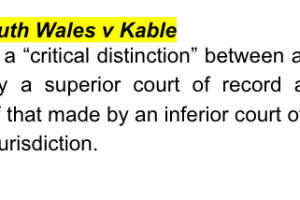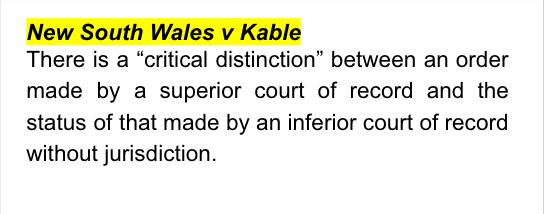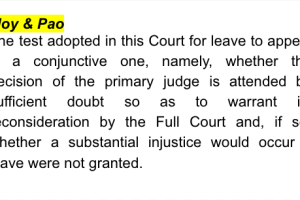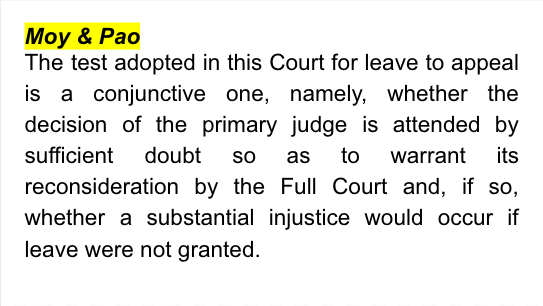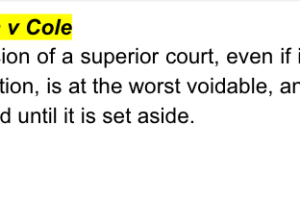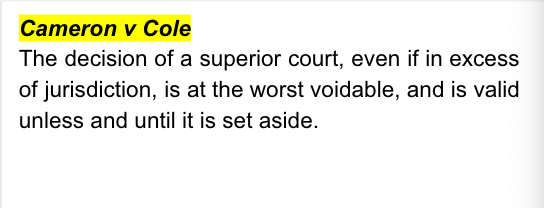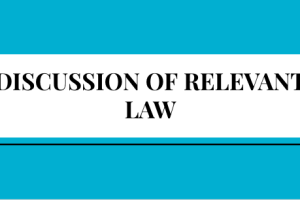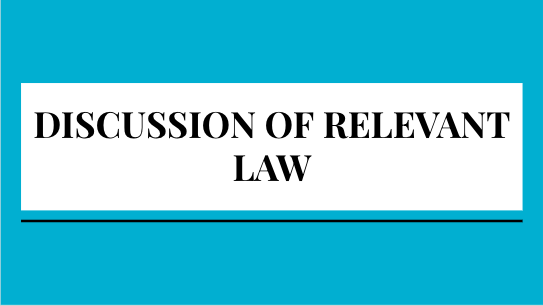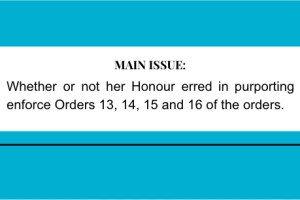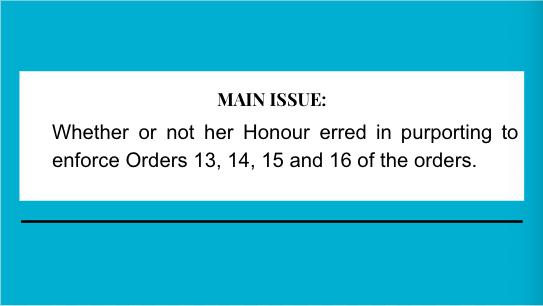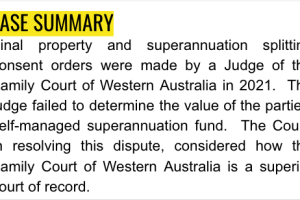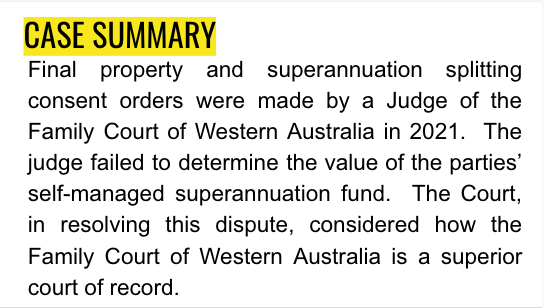- · 4780 friends
Parties Dispute Final Property Orders

Chaban & Chaban [2022] FedCFamC1A 162 (11 October 2022)

Final property and superannuation splitting consent orders were made by a Judge of the Family Court of Western Australia in 2021. The judge failed to determine the value of the parties’ self-managed superannuation fund. The Court, in resolving this dispute, considered how the Family Court of Western Australia is a superior court of record.

Facts
By consent orders made by a judge of the Family Court of Western Australia on 20 April 2021, the parties agreed to finalise their dispute in respect to property settlement following the breakdown of their relationship. The subject consent orders included Orders 13, 14, 15 and 16 (“the relevant orders”), which are as follows: a base amount be allocated to the Wife from the Husband's interest in the Chaban Superannuation Fund ("the Fund"); whenever a splittable payment becomes payable in respect of the Husband's interest in the Fund: (a) The Wife is entitled to be paid the amount and (b) There is a corresponding reduction in the entitlement of the person to whom the splittable payment would have been made but for this order.
It is contended that, in making a superannuation splitting order on 20 April 2021, the judge failed to determine the value of the parties’ self-managed superannuation fund which, it was contended, was a precondition to those orders being validly made even though the orders reflected the parties’ consent position. It is contended by the applicant husband, Mr. Chaban (“the applicant”), that the error on the part of the judge who made the 20 April 2021 orders is such that the orders were null and void and therefore incapable of enforcement by the challenged order made by the magistrate on 10 June 2022.
By way of an Application in a Proceeding filed on 17 January 2022, the wife, Ms. Chaban (“the respondent”) sought orders for the enforcement of the relevant orders. On 10 June 2022, the magistrate made orders that are the subject of this appeal. The applicant seeks to appeal only Orders 2, 3, 5, and 7 which provides that within 7 days of the date of publication of these orders, the parties do all things and sign all documents necessary and provide all of the necessary authorisations to any financial institution that hold monies on behalf of the Chaban Superannuation Fund to implement the superannuation splitting orders as set out at paragraphs 13-18 (inclusive) of the orders made (by consent) on 20 April 2021 (“the superannuation splitting orders”). Further, in the event that the Respondent Husband, Mr. Chaban, does not comply with the previous paragraph, pursuant to s 106A of the Family Law Act 1975 (Cth) the Applicant be appointed to sign all of the documents necessary to implement the superannuation orders on behalf of the Respondent.

Issue
Whether or not her Honour erred in purporting to enforce Orders 13, 14, 15, and 16 of the orders.

Applicable law



Analysis
There must come a point in any developed legal system where decisions made in the exercise of judicial power are given effect despite the particular decision later being set aside or reversed. That point may be marked in a number of ways. One way in which it is marked, in Australian law, is by treating the orders of a superior court of record as valid until set aside. Were this not so, the exercise of judicial power could yield no adjudication of rights and liabilities to which immediate effect could be given.
Both parties acknowledged that the Family Court of Western Australia, constituted by a single judge, is a superior court of record. Orders made by a superior court of record remain valid unless and until they are set aside on appeal or quashed by way of prerogative writ.
Conclusion
The application for leave to appeal is dismissed. Within 28 days of the date of these orders, the applicant is to pay the respondent’s costs in the fixed sum of $3,029.18.


